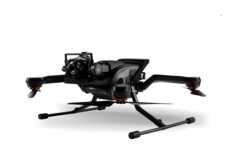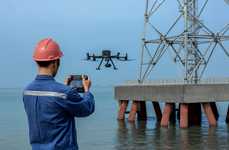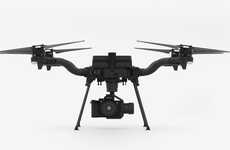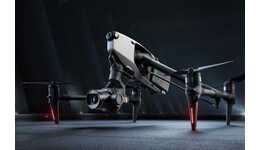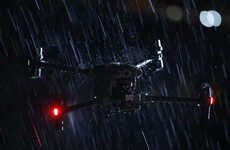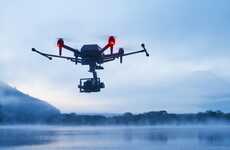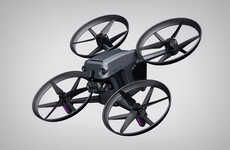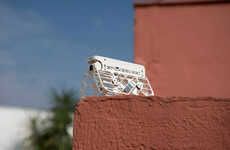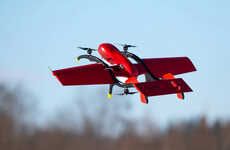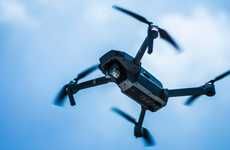
This Camera is Designed For High-Powered Survey and Inspection Missions
Rahul Kalvapalle — May 9, 2018 — Tech
References: industrial.phaseone & dpreview
In recent times, much of the talk and hype surrounding drone cameras has centered around their use as recreational and semi-professional photography tools, but the fact of the matter is that industrial drone cameras offer a lot of promise for various applications, and none more so than the iXM 100MP.
Developed by much-vaunted Danish company Phase One, this particular industrial drone camera features a high-powered 100-megapixel sensor, not to mention an IP53-certified waterproof structure as well as an ability to withstand a vast array of temperatures and humidity levels. What's more, the camera can also be used with four lenses, two of which are designed for surveying while others can make use of pre-programmed focus.
With this combination of photographic flexibility and a rugged structure, the iXM 100MP is well and truly designed for surveying, inspection and reconnaissance applications.
Developed by much-vaunted Danish company Phase One, this particular industrial drone camera features a high-powered 100-megapixel sensor, not to mention an IP53-certified waterproof structure as well as an ability to withstand a vast array of temperatures and humidity levels. What's more, the camera can also be used with four lenses, two of which are designed for surveying while others can make use of pre-programmed focus.
With this combination of photographic flexibility and a rugged structure, the iXM 100MP is well and truly designed for surveying, inspection and reconnaissance applications.
Trend Themes
1. Industrial Drone Cameras - The use of high-powered industrial drone cameras for surveying, inspection and reconnaissance is a promising trend.
2. Rugged Drone Camera Structures - The development of drone cameras with IP53-certified waterproof structures and the ability to withstand diverse temperatures and humidity levels presents disruptive innovation opportunities.
3. Photographic Flexibility - Industries can benefit from the trend of drone cameras with variable lenses and pre-programmed focus to suit various survey and inspection tasks.
Industry Implications
1. Aerospace and Defense - The aerospace and defense industry can benefit from the use of industrial drone cameras for surveillance, reconnaissance, and inspection tasks.
2. Energy and Utilities - The energy and utilities industry can leverage rugged drone camera structures to survey and inspect assets in challenging environments like offshore platforms and power transmission lines.
3. Engineering and Construction - The engineering and construction industry can benefit from the photographic flexibility of drone cameras in surveying and inspecting complex infrastructure such as bridges, railroads, and tunnels.
2.8
Score
Popularity
Activity
Freshness


